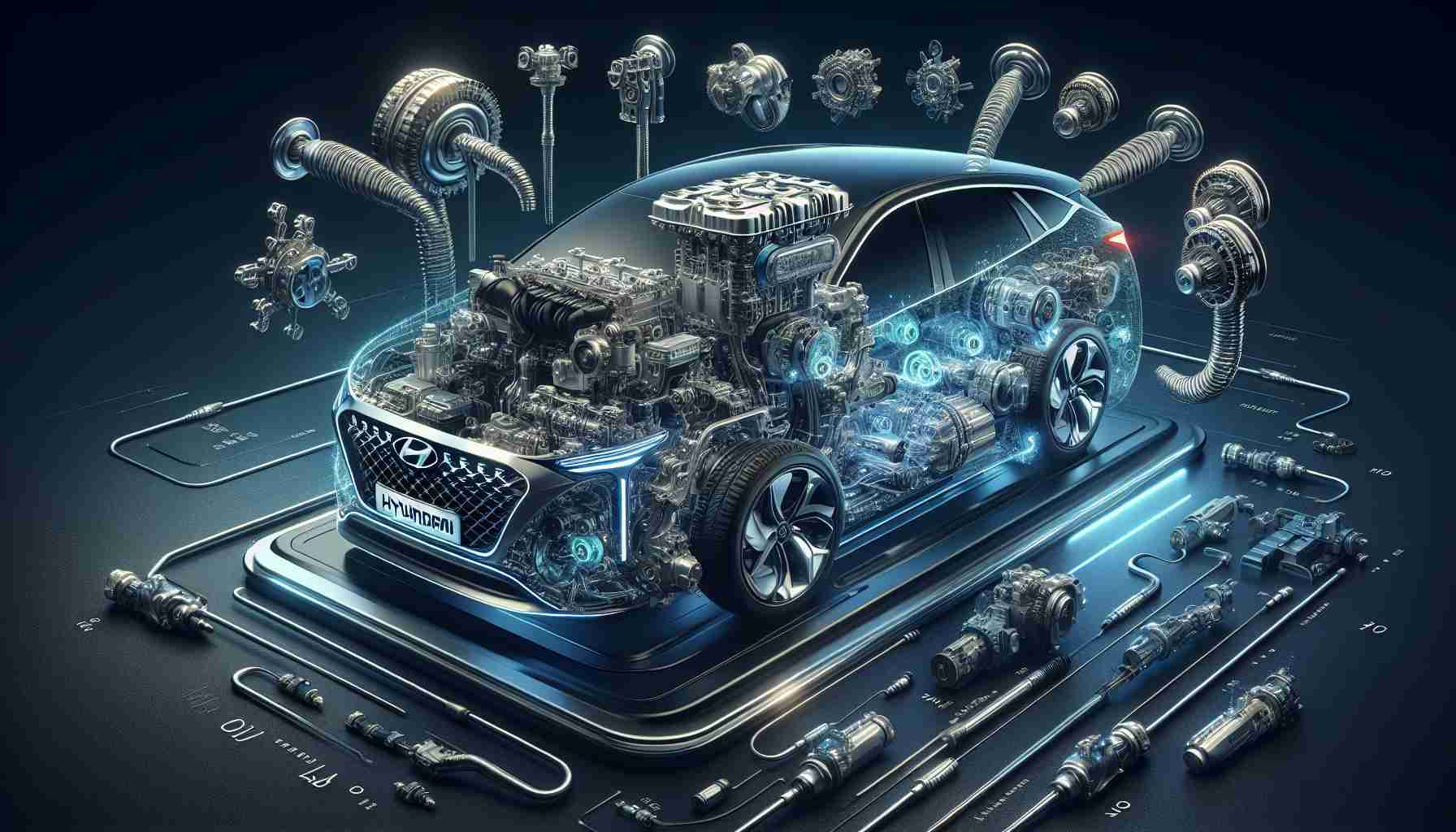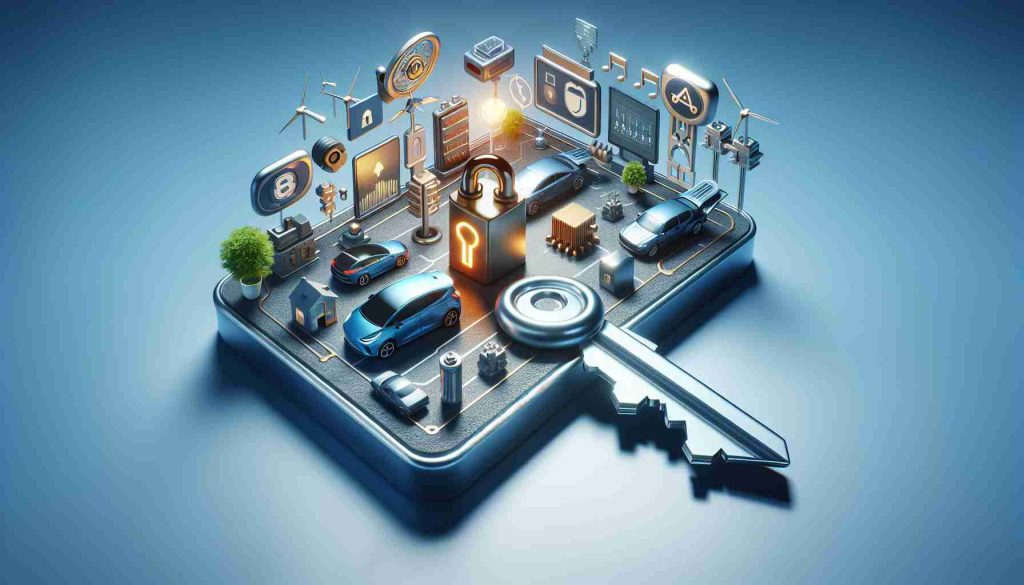As the global automotive industry shifts rapidly towards sustainable solutions, Hyundai is making significant strides in the development and implementation of hydrogen-powered technologies. This innovative approach positions the South Korean automaker at the forefront of the renewable energy movement, offering an exciting glimpse into the future of transportation.
Hyundai’s ambitious hydrogen fuel cell initiatives are not just about cars. Their vision extends to a comprehensive ecosystem, including hydrogen-powered buses, trucks, and even urban air mobility vehicles. At the core of this strategy is the company’s proprietary Fuel Cell Electric Vehicle (FCEV) technology, which promises zero emissions and substantial reductions in pollution compared to traditional combustion engines.
One of the most promising developments is Hyundai’s commitment to making hydrogen fuel economically viable. By investing heavily in research and partnerships to improve fuel cell technologies and reduce costs, they aim to bring an affordable hydrogen infrastructure to life. This could revolutionize industries beyond automotive, extending to power generation and home heating solutions.
The company’s flagship model, the NEXO, showcases the potential of hydrogen-powered SUVs, with increased range and efficiency. Furthermore, the introduction of their new HTWO brand underscores Hyundai’s determination to lead a hydrogen-centric future.
In this era of climate consciousness, Hyundai’s hydrogen strategy represents a bold path forward. By prioritizing innovation and sustainability, Hyundai is not just adapting to the future of mobility—they are actively shaping it.
The Green Revolution: Hyundai’s Hydrogen Endeavors and Their Global Impact
Hyundai’s accelerated investment in hydrogen-powered technologies heralds a transformative era not only in the automotive industry but also with profound implications for the environment, humanity, and the global economy. By cultivating a comprehensive hydrogen ecosystem, Hyundai is not simply innovating in transportation; they are molding a sustainable framework that could redefine energy consumption and distribution across multiple sectors.
Environmental Impact
Hyundai’s advancement in hydrogen fuel cell technology signifies a monumental stride in reducing the world’s carbon footprint. The core appeal of their Fuel Cell Electric Vehicle (FCEV) technology is its promise of zero emissions, contrasting starkly with the pollutants generated by traditional internal combustion engines. As adoption of hydrogen-powered vehicles increases, we could witness significant declines in air pollution levels, particularly in urban areas plagued by smog and poor air quality. Furthermore, the scalability of this technology provides potential applications in buses, trucks, and even air mobility solutions, drastically cutting emissions across diverse transportation sectors.
Impact on Humanity
The development of affordable and extensive hydrogen infrastructure stands to greatly benefit communities by providing cleaner air, subsequently reducing health issues related to pollution such as respiratory diseases and cancer. An efficient hydrogen economy also promises energy independence and resilience, offering communities an alternative to fossil fuels. This shift could spark a societal transformation, galvanizing public transportation systems to adopt cleaner technologies, improving the quality of life and potentially narrowing socio-economic disparities tied to health outcomes.
Economic Influences
From an economic standpoint, Hyundai’s commitment to making hydrogen fuel economically viable could invigorate job creation and stimulate economic growth. The research and development necessary to innovate low-cost, efficient fuel cells will likely generate a demand for new skill sets, driving job growth in science, engineering, and manufacturing. Moreover, the establishment of a hydrogen infrastructure would attract investments and incite a competitive market for green energy, positioning countries that lead in hydrogen technology as pioneers in the global energy market.
Connections to the Future of Humanity
Looking towards the future, Hyundai’s hydrogen strategies could serve as a blueprint for large-scale sustainability efforts. The transition to hydrogen power is emblematic of the broader movement towards renewable energy sources, signaling a shift that could redefine economic structures, global energy policies, and environmental stewardship. The implementation of such technologies worldwide could mitigate the effects of climate change, secure energy supplies for future generations, and promote global stability by reducing resource-driven conflicts. As Hyundai shapes a hydrogen-centric future, they are not merely innovating for survival; they are weaving the foundation of a greener, more sustainable planet for humanity to thrive.
Hyundai’s Bold Hydrogen Vision: Revolutionizing Future Mobility
As the world embraces sustainable solutions, the automotive industry is experiencing a transformative shift. At the heart of this revolution is Hyundai’s pioneering work with hydrogen-powered technologies, positioning the South Korean giant as a leader in renewable energy transportation.
Innovations and Features
Hyundai’s dedication to hydrogen technology goes beyond vehicles. It envisions a hydrogen ecosystem, incorporating buses, trucks, and even urban air mobility vehicles. Central to this vision is their proprietary Fuel Cell Electric Vehicle (FCEV) technology, which offers zero emissions and significantly less pollution than traditional engines.
The HTWO Brand
Hyundai’s newly launched HTWO brand highlights their commitment to a hydrogen-driven future. This brand focuses on innovative hydrogen solutions and aims to further solidify Hyundai’s presence in the clean energy sector.
New Developments
One of Hyundai’s key goals is to make hydrogen fuel economically feasible. The company is investing in research and strategic partnerships to advance fuel cell technologies and reduce costs. This could potentially revolutionize not just transportation but also power generation and heating sectors worldwide.
Hyundai NEXO: A Flagship Model
The Hyundai NEXO model stands as a testament to the potential of hydrogen-powered SUVs. Known for its increased range and efficiency, the NEXO showcases Hyundai’s potential to adapt hydrogen technology into consumer vehicles effectively.
Pros and Cons
Pros
– Zero Emissions: Hydrogen vehicles like the NEXO emit only water, aligning with global sustainability goals.
– Extended Range: Hydrogen vehicles offer a longer driving range compared to many electric cars, making them practical for long-distance travel.
– Rapid Refueling: Hydrogen vehicles can be refueled in minutes, similar to traditional gasoline cars.
Cons
– Infrastructure Challenges: The availability of hydrogen refueling stations is limited, which can hinder widespread adoption.
– Cost Factors: High production and distribution costs can affect the affordability of hydrogen vehicles.
Market Analysis and Trends
The hydrogen vehicle market is poised for growth. As more companies explore hydrogen technologies, Hyundai’s early entry into the market could establish it as a key player in sustainable mobility. The global focus on reducing carbon footprints aligns with Hyundai’s vision, driving significant interest and investment in hydrogen solutions.
Future Predictions
Looking ahead, Hyundai’s hydrogen initiatives signal a future where clean energy becomes mainstream. With advancements in infrastructure and cost reduction, hydrogen vehicle adoption is set to increase, positioning Hyundai as a major influencer in shaping environmentally friendly transportation.
For more on Hyundai’s innovations, visit their [official site](https://www.hyundai.com).













